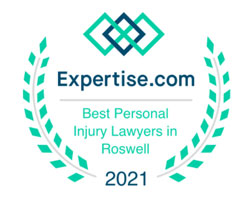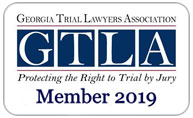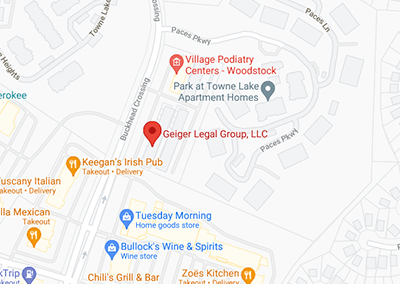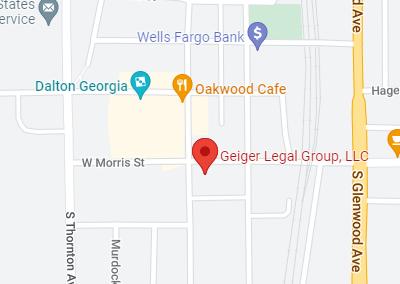What Are the Effects of Elder Abuse?
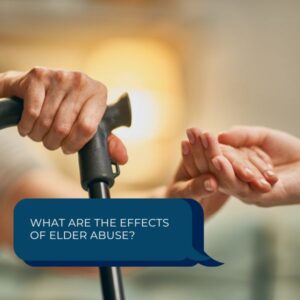
Sometimes, love isn’t enough to give our family members the care they need in their golden years. Nursing homes and long-term care facilities can often give older adults the specialized medical and emotional care their families cannot provide. Unfortunately, not all facilities take their responsibility to provide quality care seriously. In extreme cases, this lack of care can lead to elder abuse – causing a range of severe physical, emotional, and financial consequences for its victims.
At Geiger Legal Group, LLC, our mission is to help nursing home residents and their families recover from the devastating effects of elder abuse. But what is elder abuse, and how can you protect your loved ones? Our legal team can help you identify the signs and repercussions of abuse and help you find the resources your family needs during this challenging time.
What Is Elder Abuse?
Elder abuse is intentional harm or injury caused to an older adult by a caregiver. Abuse can also be the systemic failure of a caregiver to act in the best interests of an older person. While many think elder abuse is only physical, that is not the case. There are several different types of abuse, including:
- Physical abuse
- Emotional abuse
- Sexual abuse
- Financial abuse
Neglect – the intentional or unintentional failure to meet the basic needs of an older person in one’s care – is also considered a form of elder abuse.
What Consequences Can Elderly Abuse Cause?
The effects of elder abuse are serious and wide-ranging, often including physical and emotional issues like:
- Bruises and lacerations
- Broken bones
- Infection
- Illness
- Malnutrition
- Dehydration
- Bedsores
- Sexually transmitted infections
- Anxiety
- Depression
- Mood swings
- Suicide attempts
- Post-traumatic stress disorder (PTSD)
Studies suggest the long-term consequences of elder abuse can lead to physical complications, psychological health deterioration, and even early death. Elder abuse can also destroy social and family ties and lead to significant financial losses.
Symptoms of Post-Traumatic Stress Disorder
Post-traumatic stress disorder is a mental health condition commonly triggered by intense emotional or physical trauma. Frightening, shocking, or dangerous events that trigger the body’s “fight or flight” response can result in symptoms of post-traumatic stress disorder. Symptoms of PTSD fall into four different categories:
Intrusive Memory Symptoms:
- Flashbacks of the traumatic event
- Nightmares
- Recurrent and unwanted memories
Avoidance Symptoms:
- Avoiding people, like certain caregivers, that remind them of the event
- Avoiding places associated with the event
- Avoiding talking about the event
Changes in Physical or Emotional Reaction Symptoms:
- Irritability
- Sudden emotional outbursts
- Difficulty sleeping
- Difficulty concentrating
- Engaging in self-destructive behaviors
- Feelings of extreme guilt or shame
- Being easily scared
Negative Changes in Thinking and Mood Symptoms:
- Hopelessness
- Numbness
- Detaching from family or friends
- Difficulty feeling or expressing positive emotions
- Lack of interest in activities or hobbies they once enjoyed
- Memory problems
- Negative thoughts and feelings
The signs of post-traumatic stress disorder can take time to emerge. PTSD is more than a negative emotional response to trauma. It is a mental health condition that impairs a person’s ability to function and requires professional intervention. While mental health in nursing homes should be a priority, not all caregivers agree. It’s important to watch for signs of conditions like PTSD in your loved ones and get help when needed.
What to Do After Finding Out Your Elderly Loved One Was Abused
Discovering the abuse of a cherished loved one can be devastating. Most families don’t know what to do or where to turn for support – not just for their family members but themselves. In Georgia, there are resources that can help you report and cope with elder abuse.
Contact the Georgia Long-Term Care Ombudsman
The state of Georgia trains and certifies professionals who are responsible for helping advocate for older adults and those in long-term care facilities. The Georgia Long-Term Care Ombudsman Program pairs elderly residents with individuals who can help improve the quality of life for residents in nursing homes and long-term care facilities. An ombudsman can intervene in problematic situations and provide helpful resources to elderly individuals and their families.
Utilize the Eldercare Locator
The Eldercare Locator can help you find valuable resources for your older loved ones in your area. They also have information on support services and elder rights.
Report the Abuse to Adult Protective Services
Georgia’s Adult Protective Services (APS) investigates abuse allegations in nursing homes and similar facilities. You can report your concerns to the agency through its website.
Talk to an Elder Abuse Lawyer Immediately
If you believe your family member is in imminent danger, contact local authorities for help. You should also contact an experienced elder abuse attorney if you suspect abuse. An attorney can review your loved one’s situation and advise you of their legal rights. They can also investigate your concerns and gather vital evidence to hold the abusive caregiver or nursing home accountable.
How to Protect Your Loved One from Elder Abuse
You are your loved one’s greatest advocate. Protecting them from elder abuse means recognizing the signs and taking action when you feel something is wrong. Keep in touch with your loved one and take note of physical and emotional changes. Talk to them about what’s happening behind the scenes, and make sure they feel safe coming to you if they have a problem. Never be afraid to share your concerns with other family members or a skilled lawyer.
You can also help protect your loved one by thoroughly vetting nursing homes and long-term care facilities before enrolling a family member. Medicare provides an online nursing home comparative tool. You can also find health inspections and information on recent citations and violations online. You should request a tour and talk to caregivers and residents about their experiences. Be sure to ask about the facility’s caregiver-to-patient ratio.
If you discover abuse, talk to a skilled elder abuse attorney about your legal options for recovering compensation. The at-fault nursing home may owe your loved one financial compensation for the abuse’s physical, mental, and financial consequences.
Contact the Elder Abuse Lawyers at Geiger Legal Group, LLC for Help
Need help seeking justice for you or your loved one? Contact the experienced elder abuse lawyers at Geiger Legal Group, LLC today. We offer a free, no-obligation consultation where we can review the specifics of your situation and advise you of your legal rights. Let us support you and your family during this challenging time by demanding the compensation and accountability you deserve.




